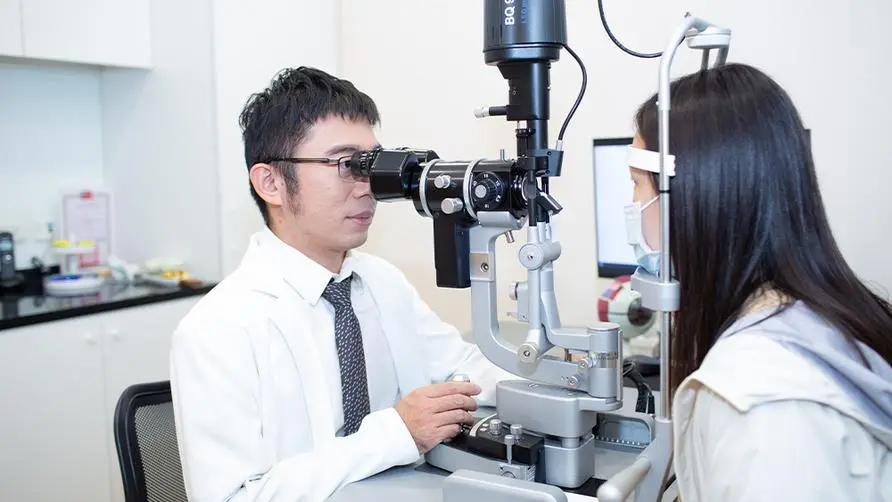A lot of people under 40 years old are "presbyopic"! Is it hopeless to have laser surgery?

Presbyopia is increasing among people under 40! Is vision deterioration likely to cause presbyopia again?
Modern people’s lifestyle of working long hours, watching TV shows, and watching mobile phones has led to a downward trend in the age of “presbyopia”. Ophthalmologist Zhang Congqi said that he once treated a dentist who was under 40 years old for laser surgery because of presbyopia. Unexpectedly, due to frequent medical visits and reading, his vision deteriorated and presbyopia came back to him again. When working, it is necessary to frequently switch between glasses of different powers in order to explain the condition and sign documents smoothly, which may even affect the medical treatment process and cause a lot of inconvenience to daily life.
According to statistics from the Taiwan Health Promotion Administration, more than 50% (54.5%) of people over 40 years old have presbyopia, which shows that the vision problems of middle-aged and middle-aged people should not be underestimated. Dr. Zhang Congqi said that presbyopia is caused by the reduced adjustment ability of the eyes and the inability to interpret images based on distance, resulting in blurred vision when viewing close objects. Moreover, modern people often have the problem of presbyopia combined with myopia, and must wear myopia glasses plus reading glasses. , or directly wear multifocal glasses to meet the needs of eyes at different distances.
Presbyopia will get worse with age. Is there no need for laser surgery after the age of 45?
Dr. Zhang Congqi pointed out that generally presbyopic glasses are only suitable for a specific viewing distance. In addition, people now use mobile phones frequently, and the demand for mid-range eyesight has greatly increased. In recent years, it has been found that the willingness to undergo presbyopic laser surgery has increased, especially for those who are not suitable for presbyopia. People who may feel dizzy or uncomfortable wearing glasses or even presbyopic glasses may consider using laser surgery to solve the problems of myopia and presbyopia at once.
“Many people believe that the degree of presbyopia will increase with age. When presbyopia becomes severe, you will need to wear reading glasses anyway. Therefore, it is not recommended for those over 45 years old to receive presbyopia laser treatment. However, there are actually treatments that can be done by adjusting the spherical image of the cornea. It increases the depth of field, improves the effect of binocular parallax fusion, and also improves close vision, breaking through the problem of insufficient laser correction for presbyopia!”
Can presbyopia be cured by laser treatment? 1The operation restores distance, middle and near vision at the same time
Dr. Zhang Congqi said that people aged 40-60 are the backbone of society and the breadwinners of their families, and most of them cannot avoid the use and consumption of their eyesight. In the past, traditional presbyopia laser surgery used a parallax method to correct the two eyes to different degrees. Now the improved version of LBV presbyopia laser surgery can help patients meet the needs of continuous changing focal lengths at far, medium and near distances. We remind middle-aged and middle-aged presbyopic patients with high eye-use habits or presbyopia combined with myopia to seek eye examination as soon as possible when presbyopia problems occur.
Dr. Zhang Congqi said that even patients who have undergone laser surgery can use the new presbyopia laser surgery to restore distance, middle and near vision with fine adjustments, and the operation process only takes about 10 to 15 minutes, and the postoperative period is about 10 minutes. It takes 1 to 2 days to get used to it, and many successful cases have been accumulated among people who use their eyes highly. People who want to improve their presbyopia, or are troubled by wearing presbyopic glasses, can discuss with an ophthalmologist to choose an appropriate treatment plan.
Further reading:





